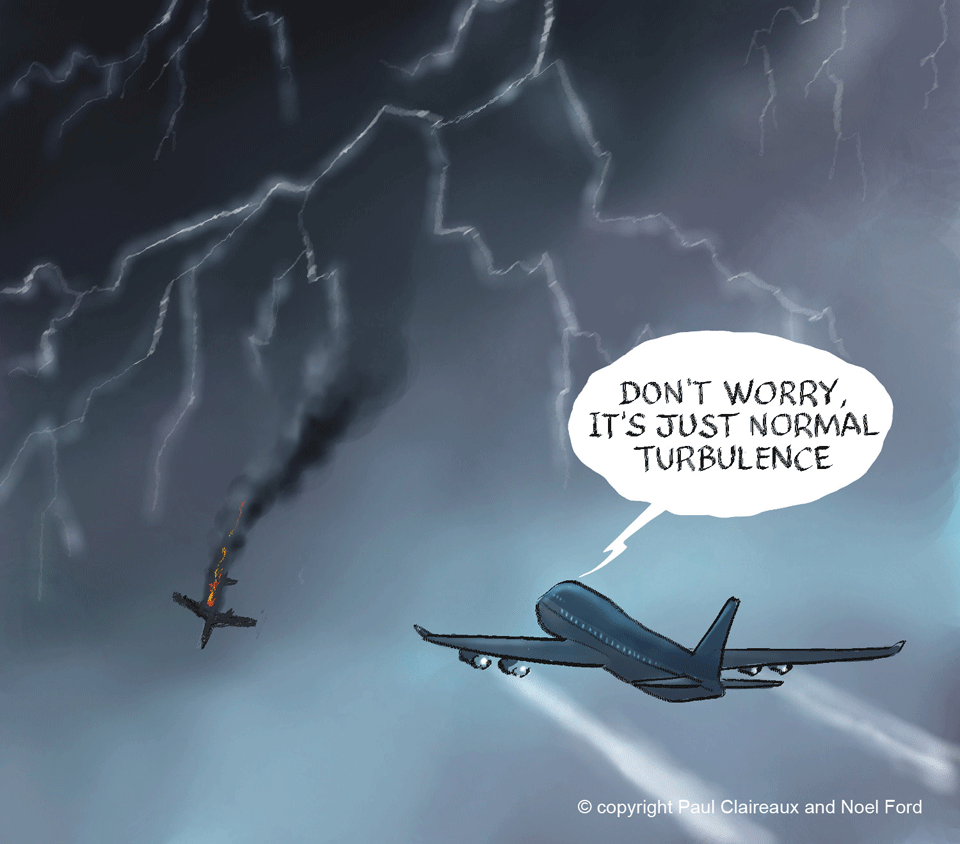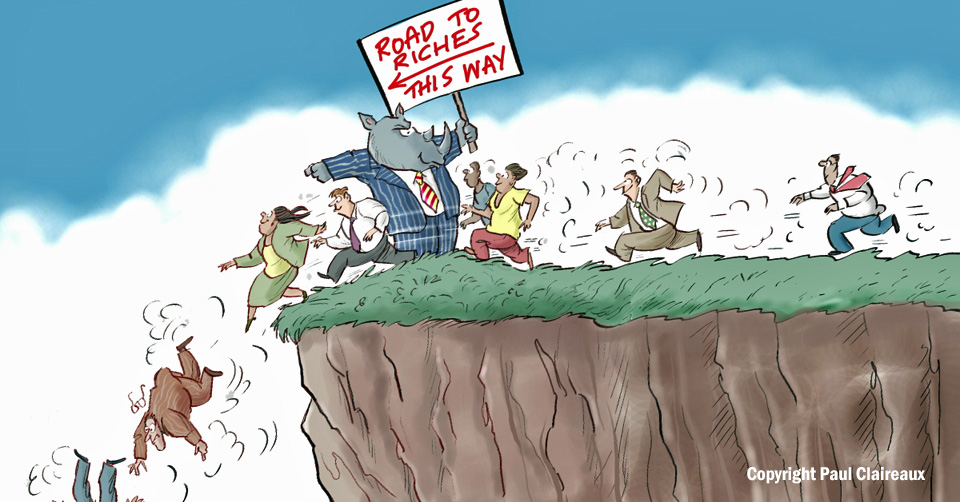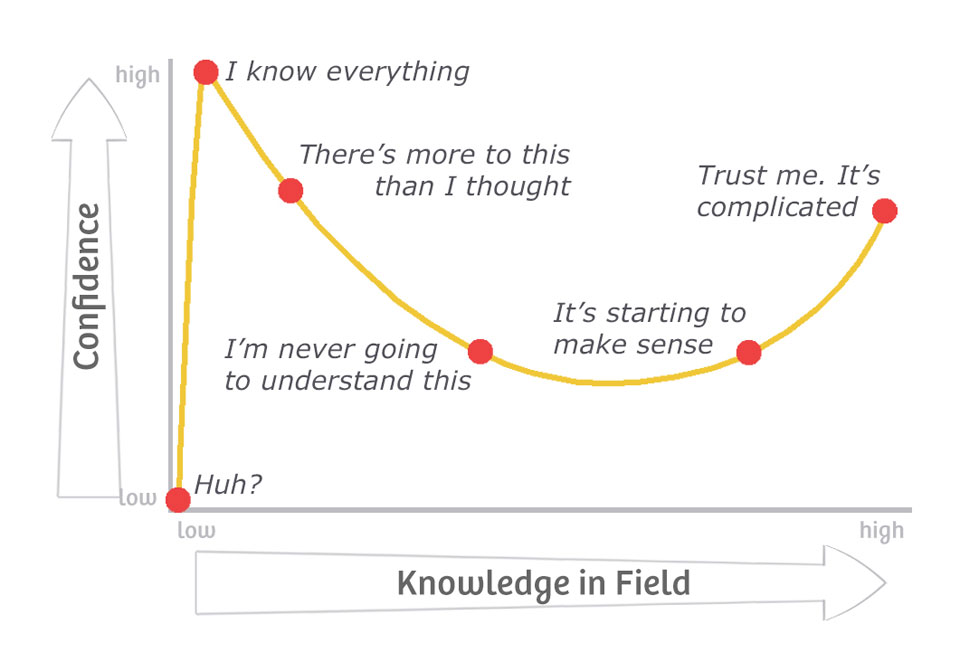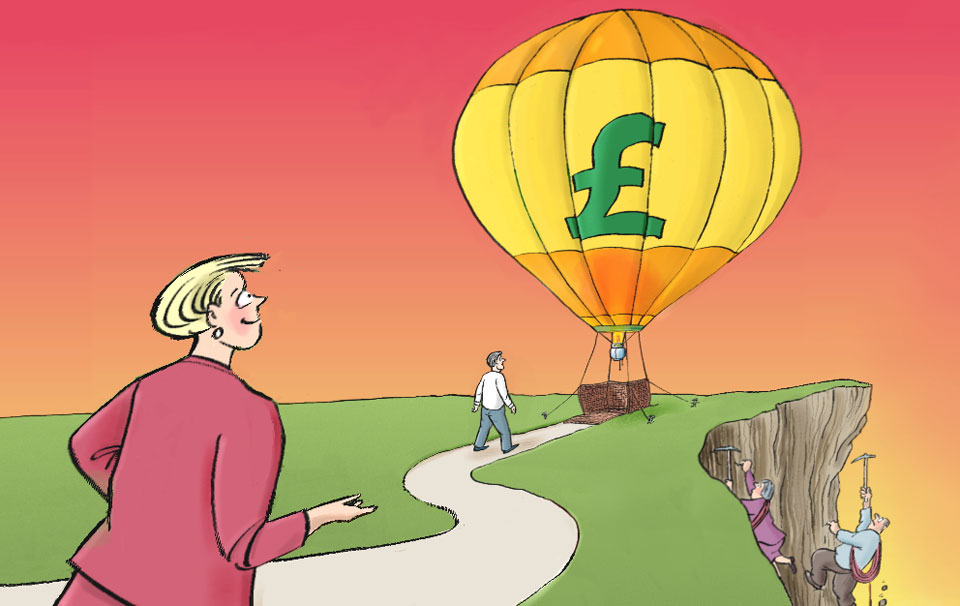Why you need to beware of goal obsession
and how it could literally kill you

If you’re planning to travel by aeroplane again (at some time in the future!) you’ll be pleased to know that pilots are trained to avoid goal obsession.
In this short Insight, I want to explore why you need to avoid goal obsession too – and why you need to be extra ‘wary’ of those around you who don’t.
What’s the big issue?
Well, we have a natural human tendency to obsess about goals, and sadly, quite a lot of macho coaches will encourage you to do this.
The problem with obsession, at those times when you get behind with your goals (and we all do), is that it can drive you to take excessive risks to get yourself back on track.
Thankfully, the pilots of our holiday airliners do not take such risks.
They do not press on through potentially destructive thunderstorms – just to get us to our destination on time.
They go around bad weather and other hazards, and, if necessary will divert to another airport.
I know this – because I trained as a Pilot myself – and held a licence for 25 years.
Now, it’s fair to say that I know less about Mountain Climbing but I would have expected that climbers are taught the same thing.
And yet, according to Chris Kayes, ‘goal obsession’ is almost certainly what killed 8 climbers on one day, on Mount Everest in 1996.
They were ‘lured into destruction by their passion for goals’
Professor Chris Kayes is an organisational behaviour expert and author of ‘Destructive Goal Pursuit: The Mt. Everest Disaster’ and his theory was that…
‘the more the climbers fixated on their goal (getting to the top) the more that goal became part of their identity’
Clearly, when you make a goal part of your identity, it becomes a difficult goal to sacrifice, despite incoming evidence of risks.
On top of that, climbers face additional pressures to take risks in this situation because they’re working in groups. And when we’re part of a group, we tend to take higher risks than when we’re alone.
This is a human behaviour sometimes known as the ‘shift to risk’, and you won’t be surprised to hear, it’s particularly prevalent among young men.
Why on earth do we do this?
There are various theories.
It could be that we worry less about the risks to ourselves as individuals when we’re in close, emotionally bound, working groups. For some reason we feel that the risk is being shared (Wallach, Kogan and Bern (1964))
It might be that high risk-takers are the ones who tend to be confident (rightly or wrongly) and they’re the ones who persuade others to follow (Collins and Guetzkow (1964)
And there’s lots of evidence for our tendency to follow the instructions of confident people.
Top tip – beware of overconfident people!

Confidence and Competence do not correlate – especially the bottom end of the curve.

Similarly, Social status in groups is often associated with risk-taking (Brown (1965))
And, as people focus on the detail of their potential actions, they start to become more familiar and “comfortable” with them – leading to a lower perception of risk. (Bateson (1966))
My guess is that a combination of these factors is at play with most groups in risky situations, but whatever the cause – it’s worth knowing that we tend to ‘shift to risk’ when in groups.
What’s more, at these times, it’s often the bravest person who risks ‘ridicule’ (one of our greatest fears) by standing up to the overconfident leader to offer some rational advice.
And to reinforce this point – take a look at this quote, attributed to Edmund Burke, which you’ll also find it at the entrance to the holocaust section of the imperial war museum.

Perhaps the same rule applies to the triumph of excessive risk.
If good men (and central bankers) stand by and watch it happen – the risk-taking will surely triumph – at least for a time 🙁
So, take care out there, and SPEAK UP if you don’t like the look of the risks you’re being asked to take.
The truth is, with your life or your money, you don’t ‘have’ to take big risks – just because someone says you must – or you see others taking them.
There’s always another way to the top of every mountain, or another day to make your climb.

You can read more on the value of goals here and get Seven ideas for achieving more of your goals here
You might also like to listen to Oliver Burkeman below, (he’s one of my favourite authors) as he offers his thoughts on goal obsession – and that Everest disaster.
Thanks for dropping in
Paul
For more ideas to achieve more in your life and make more of your money, sign up to my newsletter
As a thank you, I’ll send you my ‘5 Steps for planning your Financial Freedom’ and the first chapter of my book, ‘Who misleads you about money?’

Also, for more frequent ideas – and more interaction – you can join my Facebook group here
Share your comments here
You can comment as a guest (just tick that box) or log in with your social media or DISQUS account.

Discuss this article